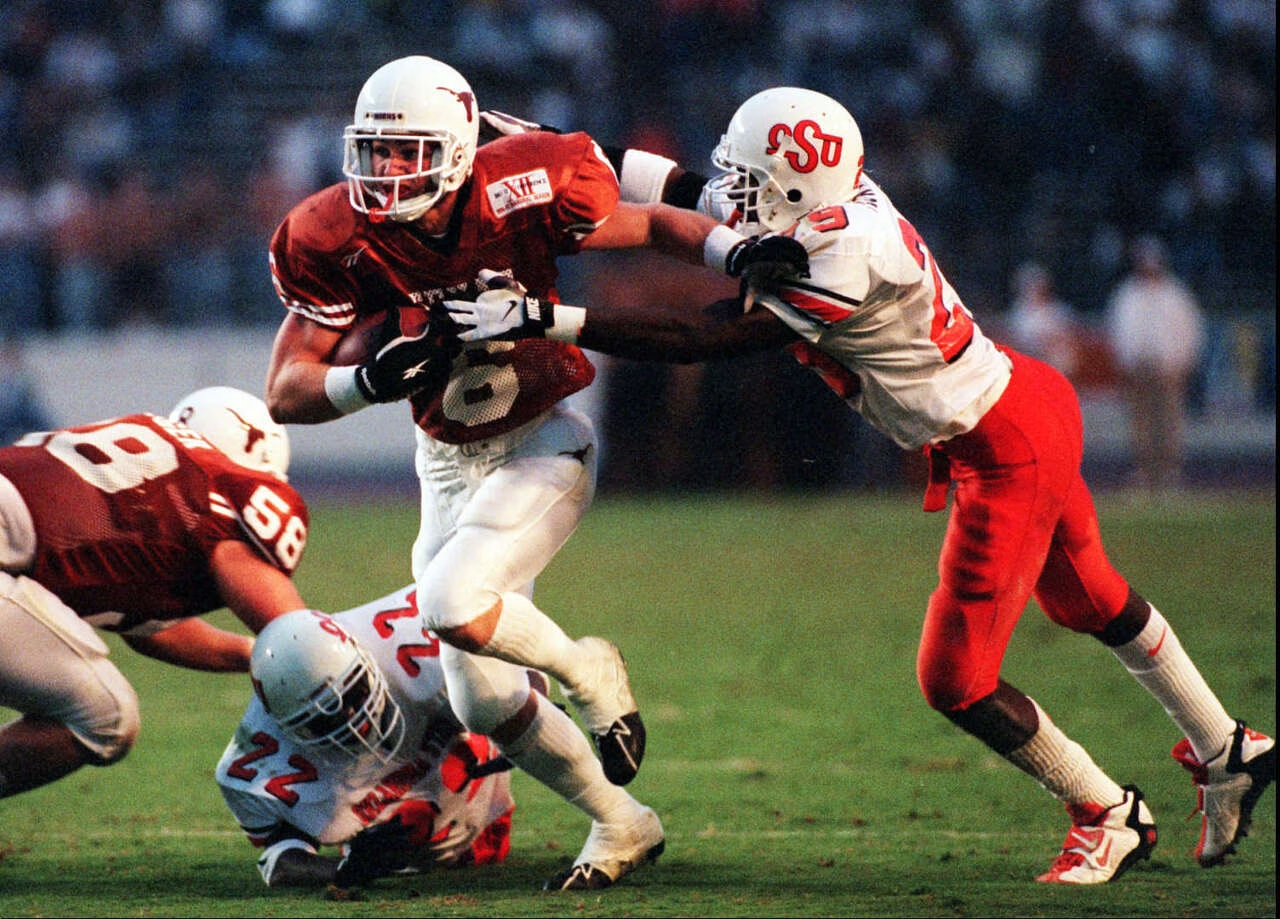My Sons Played Football. I Wish We’d Started With Flag
The Evolution of Football and the Importance of Brain Health
For years, I spent countless Friday nights at Mercer Stadium in Missouri City watching my sons play high school football. Later, I would be at Darrell K Royal-Texas Memorial Stadium in Austin and Amon G. Carter Stadium in Fort Worth on Saturdays. I was the dad who never missed a game, believing that football taught discipline, teamwork, and character.
However, if I could go back in time with the knowledge I have now about brain health, I would have encouraged my boys to try flag football until high school. Even then, I would have demanded strict limits on contact practices.
What changed my mind wasn’t the dramatic helmet-to-helmet collisions you see on highlight reels or even a ground hit to the head like the one that recently put Longhorns quarterback Arch Manning in concussion protocol. It was learning about the thousands of smaller hits that occur during every practice and game. These smaller impacts don’t always cause obvious symptoms but may be rewiring young brains in ways we’re only beginning to understand.
The research is clear: it’s not just the big hits that matter, but the accumulation of repetitive head impacts over time.
Understanding the Science Behind Head Injuries
The science tells a sobering story. Research published in Annals of Neurology found that the odds of developing chronic traumatic encephalopathy (CTE) roughly double every 2.6 years of play. Another study showed that while starting football young doesn’t necessarily increase CTE severity, it’s linked to symptoms appearing about 2.5 years earlier for each year of youth play. This means those who started playing before age 12 may experience problems roughly 13 years sooner than those who wait.
That said, the evidence isn’t entirely one-sided. A study of hundreds of former University of Notre Dame football players found that while they reported more headaches and cognitive complaints, they actually had lower all-cause mortality than the general population. This highlights that this research is still evolving and complex.
Texas’s Steps Toward Safer Football
Texas has already taken important steps on concussion response. The state requires concussion oversight and return-to-play rules under Natasha’s Law (House Bill 2038, which passed in 2011). This law requires doctors to lead Concussion Oversight Teams and use proven methods to handle diagnosed concussions.
We should build on that foundation by emphasizing prevention. One way to do this is to make flag football a UIL varsity sport in all high schools for boys and girls. This would mean official seasons, district championships, and state tournaments, giving flag the same recognition and resources as other varsity sports. Schools could offer flag as a legitimate varsity pathway alongside tackle, creating real choices for student-athletes.
With flag football headed to the 2028 Olympics in Los Angeles, there’s even a new elite pathway for those interested in pursuing the sport professionally.
What Can Families and Schools Do Now?
So what can families and schools do right now? Choose flag before high school. If your teen opts for tackle later, treat contact like a budget—fewer full-speed practices, safer technique, and clear limits from Mondays through Thursdays. Ask programs to publish their contact policies and track head-impact exposure, not just concussions. Make sure that qualified medical professionals—not game-day emotion—guide return-to-play decisions, as Natasha’s Law requires.
I’m not anti-football. I’m pro-kid. The sport my sons love can evolve without losing what makes it special. We can keep the mentorship, teamwork, and joy, but we can cut the exposure that carries long-term costs for families.
Football’s future in Texas can be both safer and stronger—if we evolve with the science.
Setting a New Standard for Youth Sports
Let’s set a new standard: Play flag until high school, and when tackle begins, manage contact with the same seriousness we bring to grades, nutrition, and sleep. Our children’s minds are too precious to gamble with, no matter how much we love Friday night lights.
Jim Scarborough is a Houston father of two former football players, including son Mike Scarborough, who played with the Tennessee Titans in the 2000 pre-season until he was sidelined by a broken hand.
- McConnell Hospitalized with Flu, Prognosis Positive - February 18, 2026
- IDCloudHost dan Edelweiss Healthcare Kembangkan Infrastruktur AI untuk Sistem Kesehatan - February 18, 2026
- Zoetis (ZTS) Q4 Earnings: Key Insights Before the Report - February 18, 2026



Leave a Reply